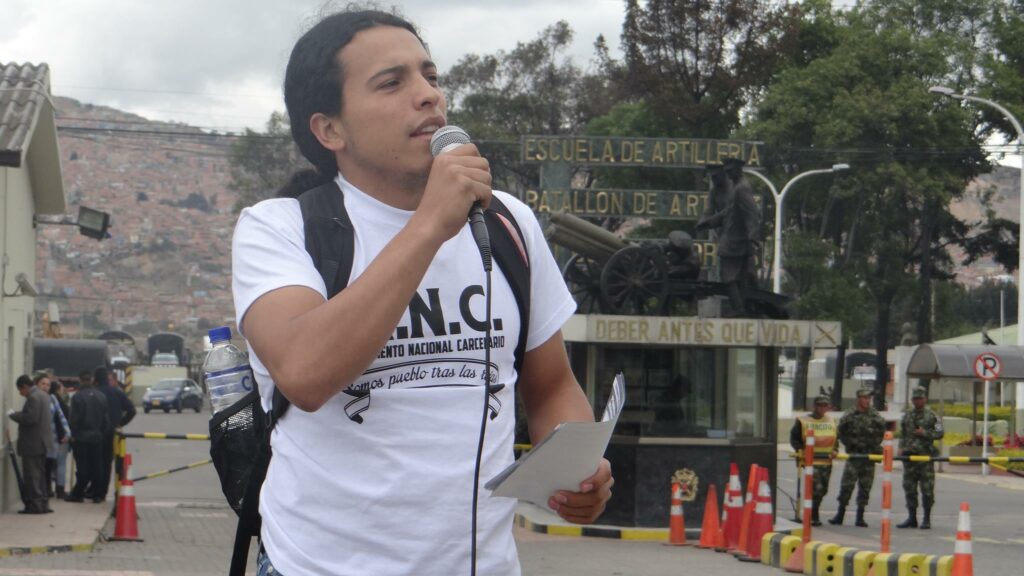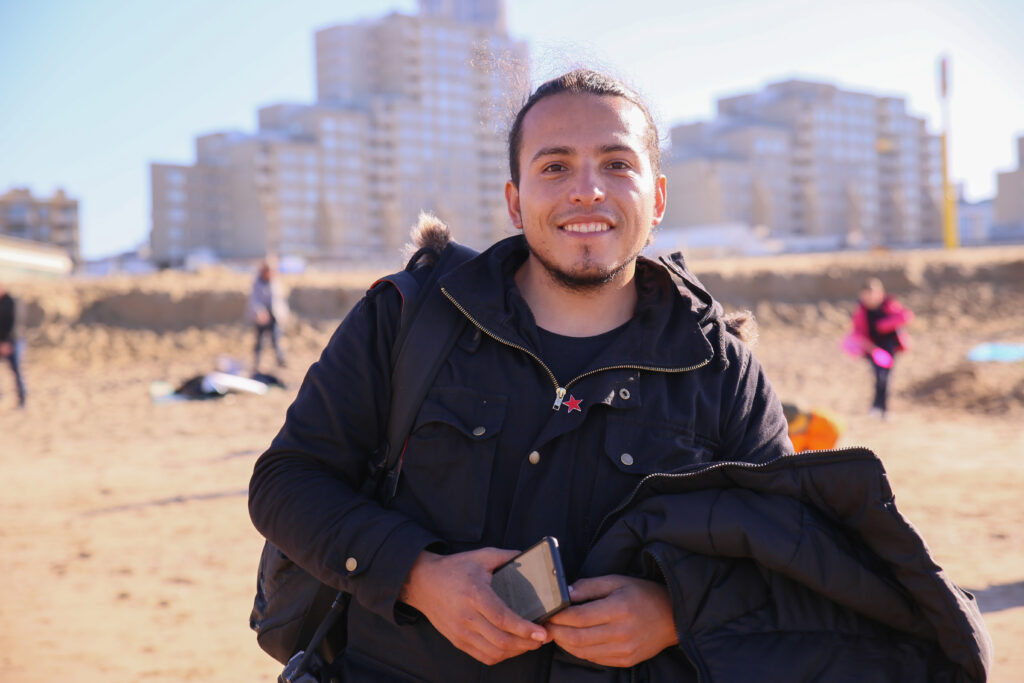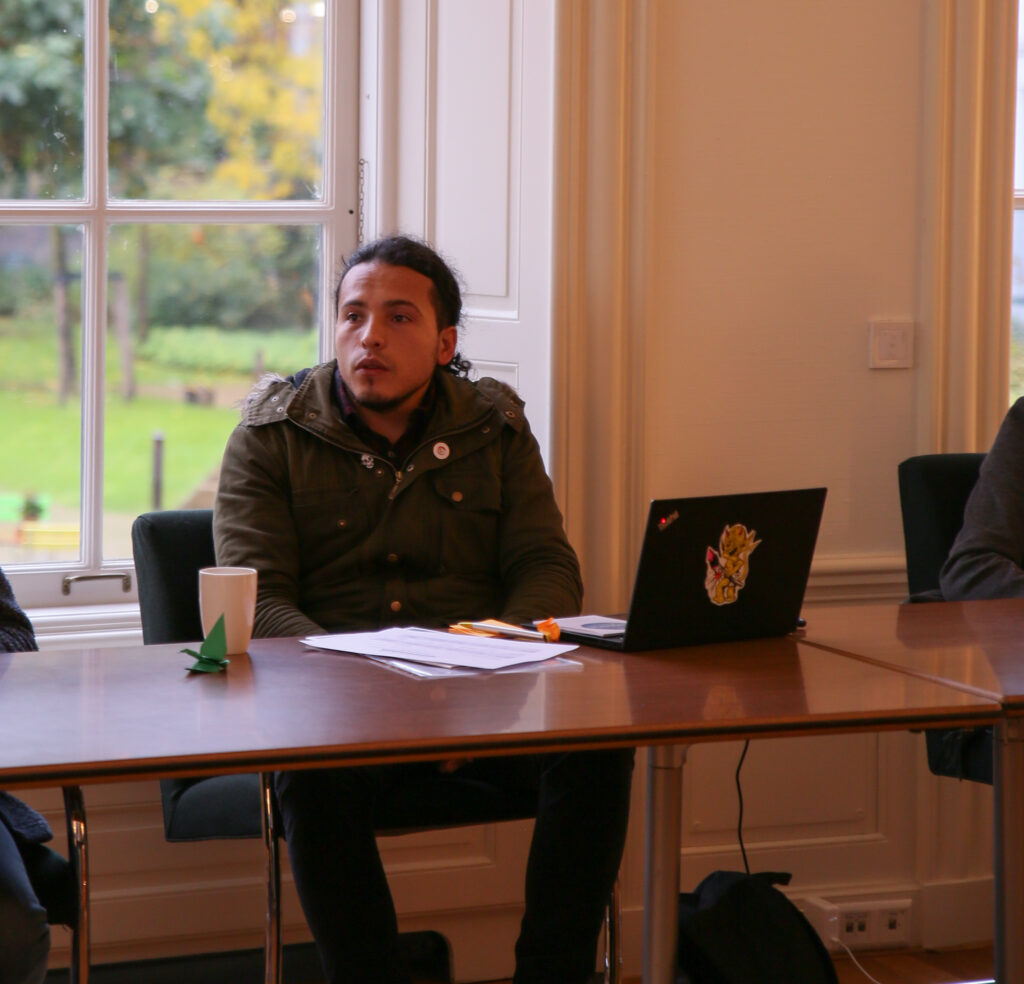Stories
June 29, 2022
Jhon León: Shelter City unites human rights defenders to change the world
By Diane Lemieux
Jhon León is from Colombia, one of the deadliest places in the world to be a human rights defender. After three months in The Hague, Netherlands, he reflects on the impact Shelter City has had on his life and work.
“In the Colombian context, we naturalize [the threat of] death, and that can lead to anxiety problems,” Jhon explains.
He works for the Unit for the Search of Disappeared Persons which is part of the organization established to implement the 2016 peace accords that ended Colombia’s more than five decades of armed conflict.
“What we do is document where the remains of the disappeared persons possibly are. In coordination with the institutional structure of the state, we try to identify the victims and give the bodies a proper burial.”

The Colombian angle
It seems straightforward as a job, but in 2021 he received several death threats, and was shot at while travelling in a van clearly marked with the organization’s official logo. In bringing these incidents to the attention of the proper authorities, he discovered that he was the victim of identity theft where he was made to look like a member of an illegal right-wing paramilitary group. What complicates his ability to protect himself from these threats is the fact that he doesn’t know who is behind any of them.
Given this context, Jhon was grateful for the opportunity to leave Colombia for three months. From the ‘respectfulness’ of the traffic in the streets to the friendly helpfulness of the Shelter City The Hague team at Justice & Peace, Jhon found the Netherlands to be a relaxing place to de-stress.
“I really used this opportunity: I studied music, took courses given at the university, studied English every day. I strengthened skills and capacities.”
He particularly enjoyed the challenge of adjusting to daily Dutch life, things like riding a bike, taking the train, making friends, and communicating in a foreign language.

Self-preservation
Jhon knows that his work is important to the families who have had close relatives disappear. Providing closure for individuals is also part of a process of national reconciliation, and an important step towards peace in his country. “Without peace there are no human rights.”
“Without peace there are no human rights.” – Jhon
That this work would lead to death threats was not something he had prepared for.
Shelter City provided “…the possibility to reflect and also to be alone sometimes, making a stop along the way to have time for oneself. This is crucial. We were told: you are the ones who save others, but who is saving you? So, the matter of reflecting and looking after ourselves is important.”
The idea of opening up space to discuss self-care and mental health with colleagues will, he feels, undoubtedly result in benefits in the work that they do.
Creating links
One of things he was most surprised to discover during his time in the Netherlands was the extent to which he was isolated in Colombia.
“Having the opportunity of learning first hand things that happen in other parts of the world, was enriching. The way the media works… means that we know a lot more about Ukraine than about Peru, for example, despite having them so close by.”
Through the networking opportunities organized through Shelter City, he learned that there are non-governmental organizations that are, or have been, active in Colombia that he’d never heard about, and tools developed in other countries that can be applied to his work.
Mitigating risk
The security training provided as part of the Shelter City programme sensitised him to the importance of mitigating risks in his life: at his home, in his office, in travel between the two and out into rural areas. He is clear that there are two types of risk: the type you can foresee and control, and the type you have no control over. With the former, he was given good advice during the programme, on cyber security for example, and ways of consciously adjusting his lifestyle to decrease risk.

But in the complexity of the Colombia context, there are risks he cannot foresee. “Of course, I could hide or lower my profile, go away or not do certain things any longer.” But Jhon has chosen another approach: he intends to become even more visible, to increase the local and international awareness of what he does. “This does not mean that the risk has gone away, but I believe that it is more difficult [to kill someone] when you are part of a community that provides support.”
He came to the programme with the express desire to improve his English and his experience in the Netherlands pressed home just how useful the language is in creating an international support network.
“We are all doing our work, each one within their own context, of course some with problems greater than others. And the best way to show solidarity to other colleagues in different parts of the world is if everyone does as much as possible and to the best of their ability. If everyone does their work, we will all progress a bit more and that way we can change the world.”
“If everyone does their work, we will all progress a bit more and that way we can change the world.” – Jhon
